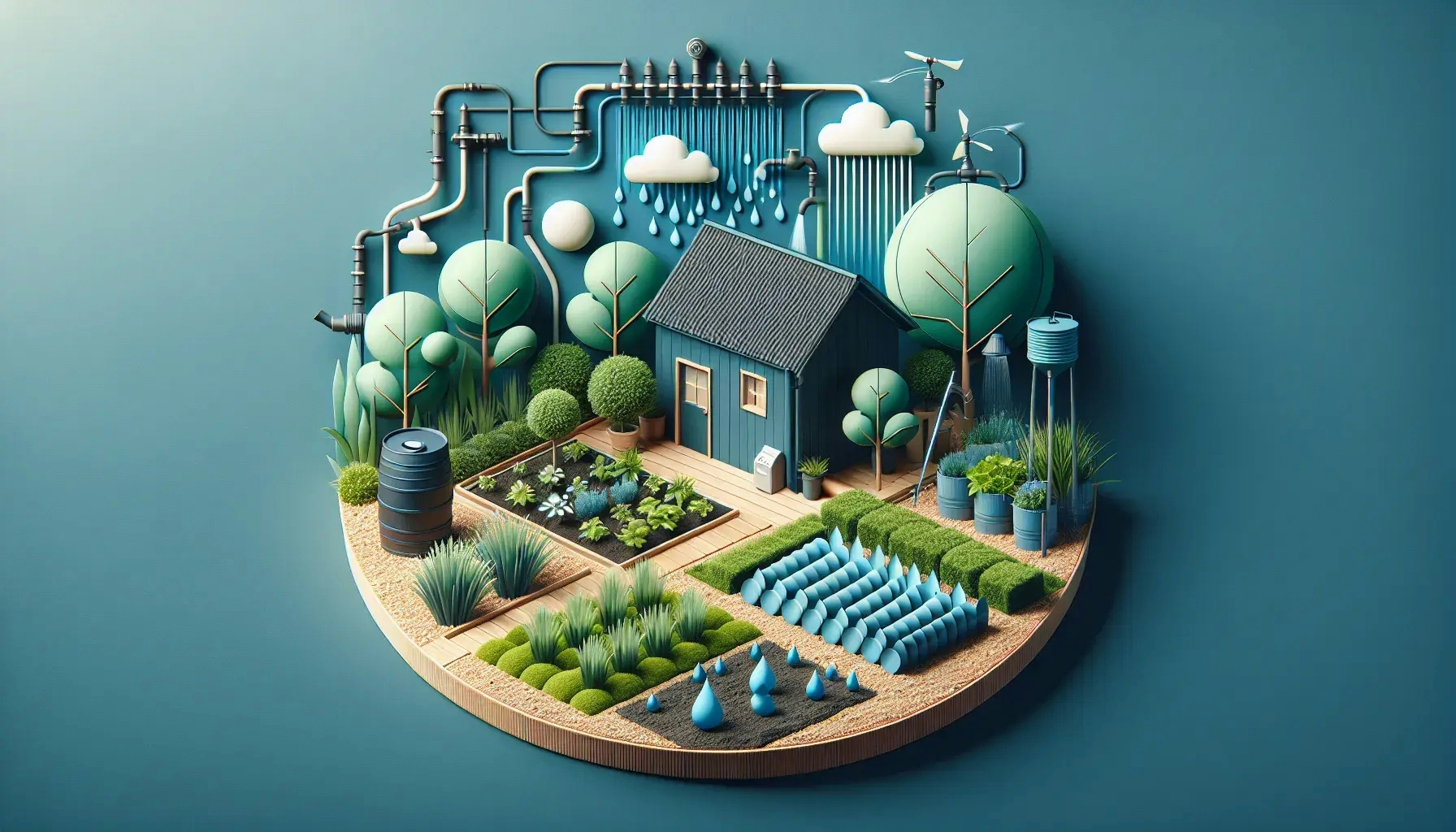Welcome to our comprehensive guide on techniques for saving water in your home garden. In this post, we will explore various strategies that can help you maintain a lush, thriving garden while also conserving water. From the type of plants you choose to the way you water them, every decision can have a significant impact on your water usage. Let's dive in and discover how you can make your garden more water-efficient.
Understanding Your Garden's Water Needs
A crucial first step in saving water in your home garden is understanding the specific water needs of your plants. Not all plants require the same amount of water. Some plants thrive in dry conditions, while others need a lot of moisture to grow.
By grouping plants with similar water needs together, you can ensure that each plant gets just the right amount of water. This technique, known as hydrozoning, can significantly reduce water wastage.
Another important factor to consider is the time of year. Most plants need more water during the hot summer months and less during the cooler seasons. By adjusting your watering schedule according to the season, you can save a considerable amount of water.
Remember, overwatering is not just wasteful; it can also harm your plants. Too much water can lead to root rot and other diseases. So, it's always better to err on the side of caution and water less rather than more.
Choosing the Right Irrigation System
The type of irrigation system you use can have a significant impact on your water usage. Traditional sprinkler systems can be quite wasteful, as a lot of the water evaporates before it can reach the plants' roots.
Drip irrigation systems, on the other hand, deliver water directly to the base of the plants. This not only reduces evaporation but also prevents water from landing on the leaves, which can lead to fungal diseases.
Soaker hoses are another excellent option for water-efficient irrigation. These hoses have tiny holes along their length, allowing water to seep out slowly and soak into the soil.
Regardless of the type of irrigation system you choose, it's important to water your plants early in the morning or late in the evening when temperatures are cooler. This reduces evaporation and ensures that more water reaches the plants' roots.
Mulching and Composting
Mulching and composting are two effective techniques for conserving water in your garden. Mulch is a layer of organic or inorganic material that you spread around your plants. It serves several purposes, one of which is to reduce evaporation from the soil.
Mulch also helps to keep the soil cool, which can be beneficial for your plants during the hot summer months. Organic mulches, such as wood chips or straw, have the added benefit of improving the soil structure as they decompose.
Composting is another technique that can help you save water. Compost improves the soil's ability to retain water, reducing the need for frequent watering. It also adds nutrients to the soil, which can help your plants grow stronger and healthier.
Selecting Drought-Tolerant Plants
One of the most effective ways to reduce water usage in your garden is to choose plants that are naturally drought-tolerant. These plants have adapted to survive in conditions where water is scarce, and as such, they require less water than other plants.
There are many beautiful drought-tolerant plants to choose from, including succulents, lavender, and certain types of grasses. These plants can add color and variety to your garden, all while helping you save water.
Remember, local native plants are often a good choice for water conservation. These plants have adapted to the local climate and soil conditions, and they typically require less water and care than non-native plants.
Rainwater Harvesting
Rainwater harvesting is a technique that involves collecting and storing rainwater for later use. This can be an excellent way to supplement your garden's water supply, especially in areas where rainfall is abundant.
There are many ways to harvest rainwater, from simple rain barrels to more complex systems with pumps and filters. Regardless of the system you choose, it's important to cover your rainwater storage to prevent mosquitoes and other pests from breeding.
Using rainwater in your garden has several benefits. Not only is it a free source of water, but it's also typically softer and less chlorinated than tap water, which can be beneficial for your plants.
Regular Maintenance and Inspection
Regular maintenance and inspection of your garden and irrigation system can go a long way in conserving water. Leaks in your irrigation system can lead to significant water wastage. Therefore, it's important to check your system regularly for any signs of leaks or damage.
Pruning your plants can also help save water. By removing dead or diseased parts of the plant, you can ensure that the water goes to the parts of the plant that need it most.
Regular weeding is another important part of garden maintenance. Weeds compete with your plants for water and nutrients, so by keeping your garden weed-free, you can ensure that your plants get all the water they need.
Embracing Water Conservation in Your Garden
As we've seen, there are many techniques you can use to save water in your home garden. From choosing the right plants and irrigation system to mulching and composting, every decision can make a difference. By implementing these strategies, you can enjoy a vibrant, thriving garden while also doing your part to conserve this precious resource. Happy gardening!

